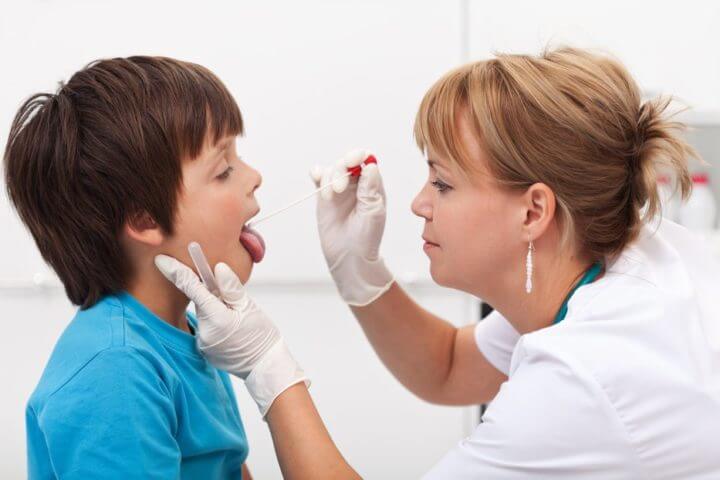It is clear that puberty is one of the moments most feared by parents, a few years of bewilderment in which their "little children" suddenly grow up and everything changes. On the other hand, obesity is a chronic disease that does nothing good. It has been shown that an excess of kilos during childhood accelerates the age of puberty, killing their childhood and precipitating their adolescence, mainly in girls.
However, girls are not the only ones who go through early puberty if they are obese. Obese boys enter puberty earlier than average, according to a study by the Endocrine Society .

What is obesity?
According to the World Health Organization, obesity is the abnormal or excessive accumulation of fat in the body that can be detrimental to health. It occurs when, for a long time, more calories are consumed than are expended. This excess energy is stored in the form of fat and weight is increased.
Obesity has serious health consequences. These include joint problems, shortness of breath, skin disorders, low self-esteem; cardiovascular diseases such as hypertension, cerebro-vascular accidents and heart attacks, diabetes and changes in blood fats that result in high cholesterol and triglycerides.
On the other hand, childhood obesity is one of the most serious public health problems of the 21st century. The problem is global and is progressively affecting many low- and middle-income countries, especially in urban areas. The prevalence has increased at an alarming rate.
Overweight, obesity, and related diseases are largely preventable. Therefore, everything that comes with childhood obesity must be given high priority.
To prevent this disease and disorders such as anorexia and bulimia, it is very important that from an early age children get used to eating as a family and that they are given a varied and balanced diet.

Can obesity accelerate puberty?
In 527 Chilean children ages 4 to 7, both total body obesity and excess abdominal fat were associated with a greater likelihood of starting puberty before age 9, reported researchers from the University of Chile in Santiago de Chile.
"With the rise in childhood obesity around the world, there has been an advance in the age at which puberty begins in girls," said lead researcher Maria Veronica Mericq, a professor at the university. "However, in children the evidence has been controversial."
In the study, it was possible to show that precocious puberty occurred in 45 children. More specifically, among children aged 5 or 6, those with obesity were 2.7 times more likely to start puberty early, and those with excess abdominal fat were more likely to reach puberty before the age of 9.
Precocious puberty is linked to potential problems including stunted growth and social-emotional problems.
"Early puberty could increase the risk of behavior problems, and in boys it could be related to a higher incidence of testicular cancer in adulthood," Mericq said. "Our results suggest that controlling the obesity epidemic in children could be useful in reducing these risks."

Symptoms of childhood obesity
First, it must be recognized that lifestyle problems (such as doing too little physical activity and consuming high-calorie foods and beverages) are the main causes of childhood obesity. However, some genetic and hormonal factors could also play an important role.
However, not all children with extra pounds are overweight or obese. Some children have body structures larger than the average frame. Also, children typically store different amounts of body fat at different stages of development. Therefore, you may not know at a glance if weight is a health concern for your child.
The Body Mass Index (BMI), which provides a reference for weight in relation to height, is the accepted measure of overweight and obesity. Your child's doctor can use growth charts, BMI, and, if necessary, other tests to help determine if his weight may pose health problems.

How to prevent childhood obesity?
Make sure your child visits the doctor for routine tests at least once a year. During the consultation, the doctor will measure the child's height, weight, and calculate his BMI.
Increasing your child's BMI or percentage range over the course of a year is a possible sign that your child is at risk of being overweight . On the other hand, if you want to help him at home, you can opt for the following tips:
- Limit the amount of sugary drinks your child drinks, or avoid them altogether.
- Give him lots of fruits and vegetables.
- Eat as a family as much as possible.
- Limit the number of times you eat out, especially at fast food restaurants. When you do, teach your child to make healthy choices.
- Adapt portion sizes based on age.
- Limit hours in front of the television or a screen to less than 2 hours a day for children over 2 years of age and do not allow children under 2 years of age to watch television.
- Make sure your child gets enough sleep.

Consequences of precocious puberty
Premature biological maturity is considered a disorder , and it is increasing markedly worldwide. It appears when the development of sexual characteristics occurs before the age of 8 in girls and 9 in boys.
Researchers have observed that girls with earlier maturing are at risk for several problems, including low self-esteem, higher rates of depression, norm-breaking behaviors, and lower academic performance. In extreme cases, a type of "psychological infantilism" occurs as a result of having a woman's body and a childish mentality.
Also, in physical terms, experts assure that early puberty could also translate into an increased risk of obesity, hypertension and some types of cancer (breast, ovarian and endometrial).

References
- The Endocrine Society. Obesity speeds up the start of puberty in boys. For S cienceDaily. [Reviewed April 2019].
